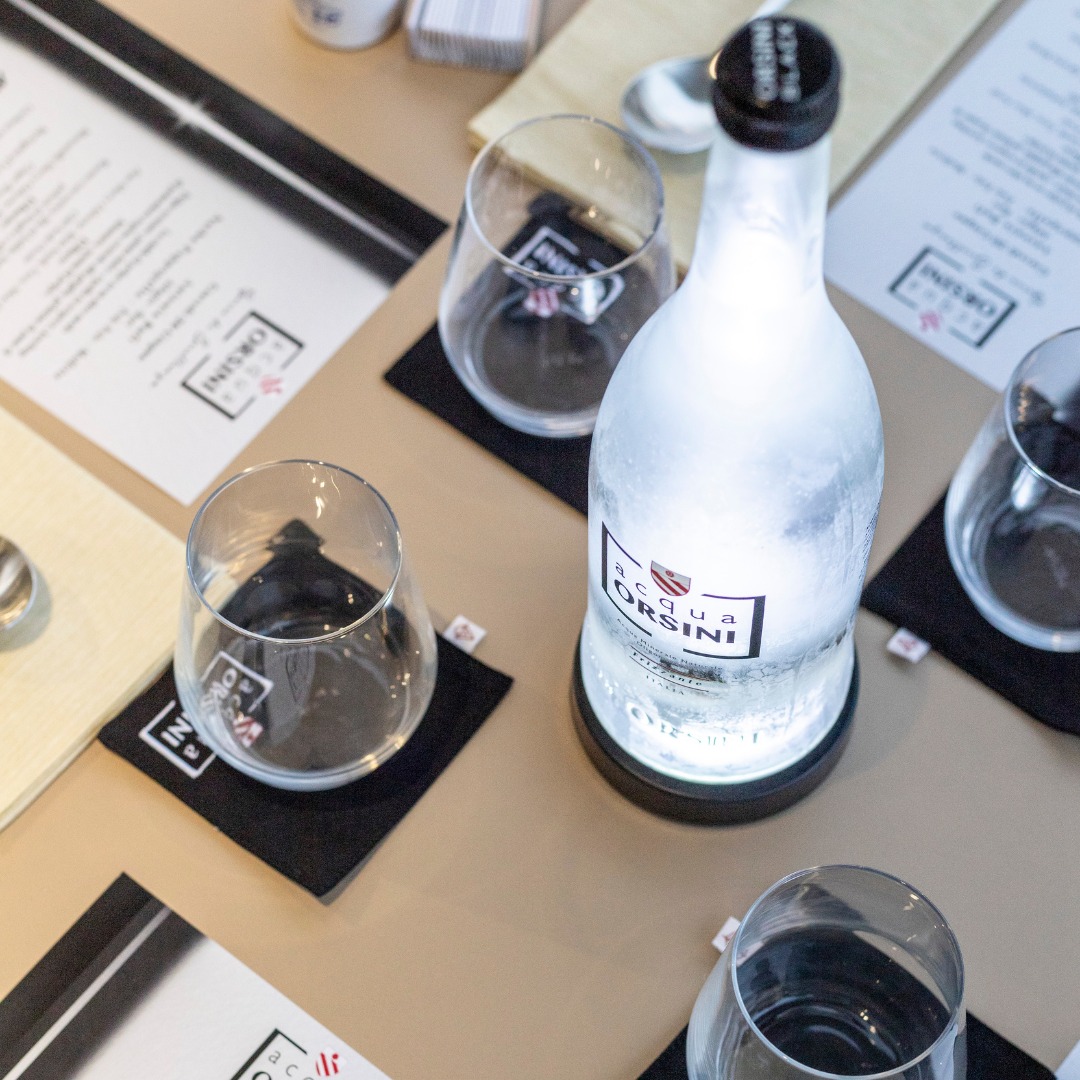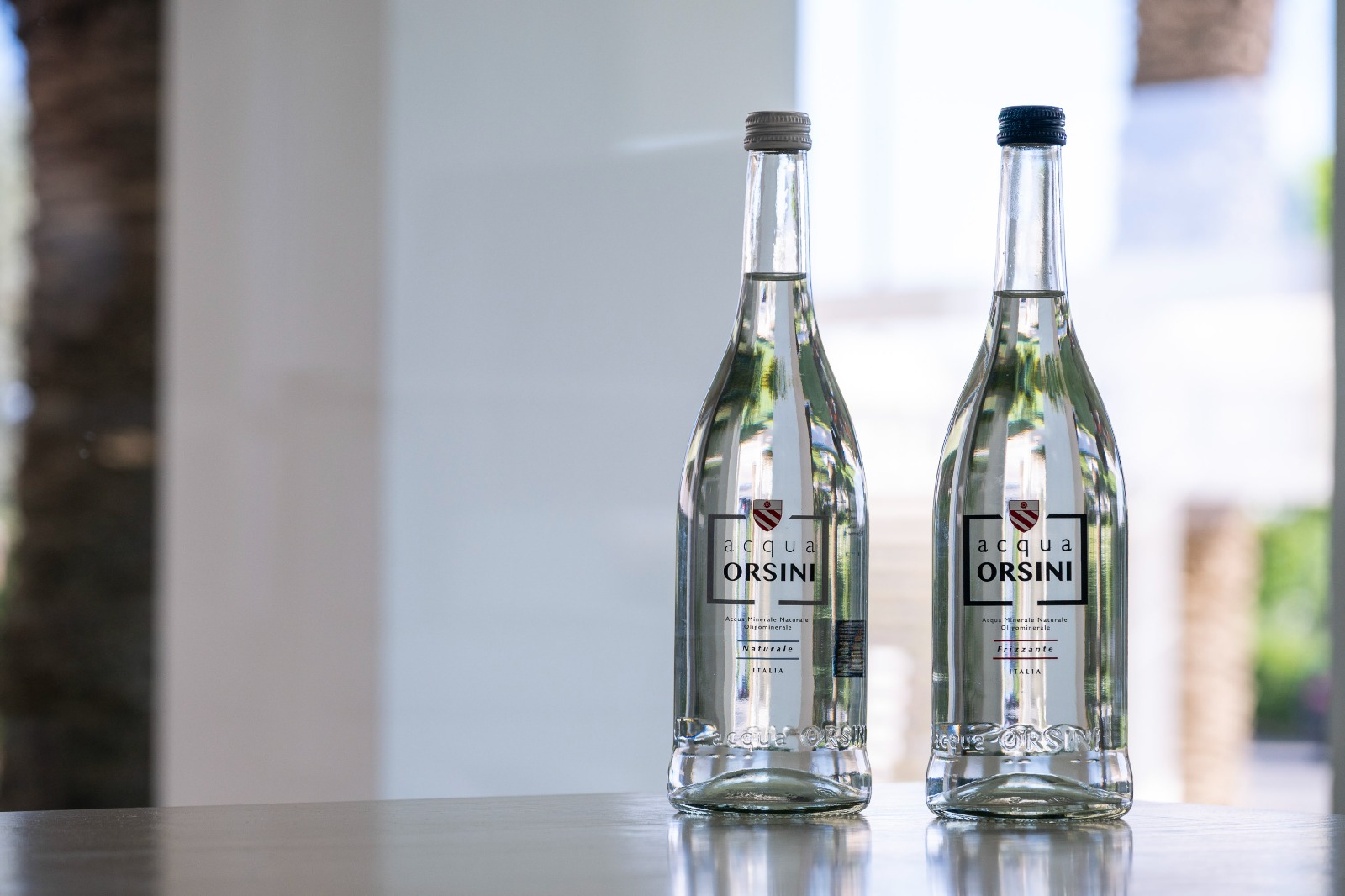When we think of good coffee, we often focus on the origin of the beans, the degree of roasting, or the extraction technique. Yet, there is one ingredient that makes up more than 90 percent of the beverage that often goes unnoticed: we are talking about water.
And not just any water, but the right one. Because yes, water, and in particular its mineral composition, can also make a big difference in the outcome in the cup.
Minerals that make a difference
Mineral water is composed of numerous dissolved elements that interact with the chemical compounds in coffee during extraction. Among the most relevant are calcium, magnesium, bicarbonates, and sodium.
- Calcium tends to strengthen acid extraction, enhancing fruity and floral notes, but if present in excess it can make coffee too acidic.
- Magnesium is particularly effective in extracting aromas and oils, contributing to a rounder, more velvety mouthfeel.
- Bicarbonates, on the other hand, play a role in balancing acidity. Too many can “flatten” the flavor profile; too few can make the coffee overly acidic.
- Sodium, although less significant, can impart a sweeter flavor and soften bitterness.
A well-balanced composition, such as that ofOrsini Water, with its moderate mineral content and slightly alkaline pH, can therefore significantly improve the quality of the preparation.
Hard water or soft water?
The concept of water hardness is related to the concentration of calcium and magnesium. Hard water, often typical of tap water, tends to interact too aggressively with the aromatic substances in coffee, altering its delicate notes. Conversely, water that is too soft, almost devoid of minerals, is likely to extract essential oils poorly, resulting in a flat, unstructured beverage.
The key is balance, and in this sense, an oligomineral mineral water like Orsini, with the right harmony of minerals and controlled purity, is an excellent base for quality espresso coffee.
Does the method matter: espresso, filter, or French press?
The type of preparation further influences the choice of water. Forespresso, where pressure is high and extraction rapid, minerals are needed to help release flavors in seconds: here, a slight mineralization aids in the creation of crema and the balance between acidity and bitterness.
In filter or French press coffee, where the contact between water and powder is longer, less lime water is needed to avoid excessive extraction of tannins, which are responsible for the astringent sensation.
Choosing water for gourmet coffee
Those who love coffee know that every detail counts.
This is why choosing the right water is anything but a minor decision. To achieve a cup that truly expresses the potential of the chosen blend, the water must be neutral, pure, balanced. In this, Acqua Orsini is a good choice: thanks to its controlled profile and natural lightness, it enhances the finer aromas of the coffee without altering its character.
Ultimately, water is not just a vehicle for coffee. It is an ingredient. And like any good ingredient, it deserves proper (fundamental) attention.





